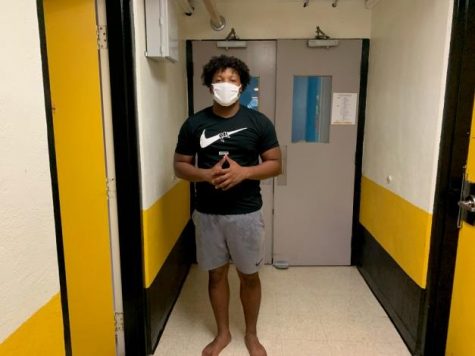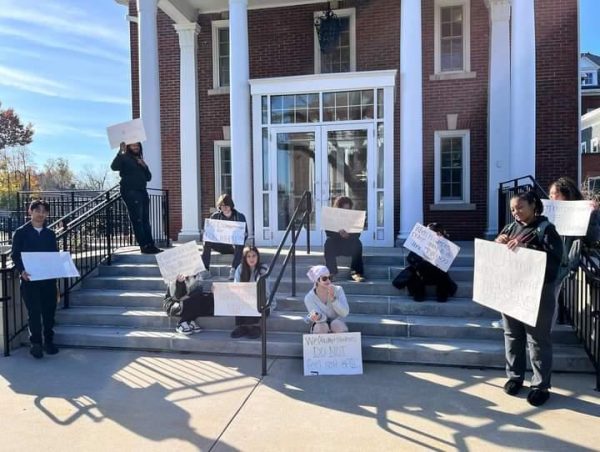Adjustments to New Normal on Campus Take a Toll on Students’ Mental Health
September 25, 2020
In the beginning of March, everyone started to hear about and fear the Coronavirus, or COVID-19. With limited information, many communities had to quickly close down.
As schools transitioned to online learning to finish the semester out, it felt like a temporary solution to an immediate issue. But over the past seven months, life has become a blur. Many important dates and holidays have become insignificant, and many normal celebrations have either been canceled outright, or else reduced in size due to the infamous six-foot standard for social distancing. Along with taking six steps back, everyone has adapted to changing social norms relating to personal interaction, daily routines, and structure.
Educational systems worldwide have been affected by the COVID-19 pandemic. Transitioning from in-class lectures to strictly online learning has affected not only students everywhere, but has also placed heavy pressures on all professional instructors. All class content and information, including lectures, classwork, quizzes, and exams, had to be moved to an accessible online database that students can easily access. Professors at all institutions had to quickly transfer all information pertaining to their classes online, and with little notice.
Transitioning into the fall semester, many schools alongside AIC have decided to continue with virtual learning for the safety of their students, faculty, and staff. Almost all interactions with teachers, friends, coaches, classmates, and teammates have become a box on a computer screen.
Bryce Stovell discussed adjusting to AIC on campus with the new social distancing policies. “I think it is weird because we can’t hang out with anyone,” Stovell said. “After a certain amount of time, there’s nothing to do because we can’t do anything. The zoom classes are hardest because I feel like I will never get there on time because my computer isn’t working.”

Morgan McLaughin also addressed similar learning challenges faced by many who are still adjusting to online learning.
“Online learning is annoying,” McLaughlin said, “because some people don’t learn as well just by looking at a screen with one person just talking to them.”

Many students and teachers are now adapting and learning how to have a successful class in these newfound circumstances. Students at AIC have the added stress of not only adjusting to new classes, but of being limited to a computer screen.
First-year student Megan Schleyer spoke on how adapting to these changes has affected her mental health.
“It was really bad switching,” Schleyer commented, “and my anxiety got worse trying to adjust to online and handle only online classes with homework and everything and not getting an in-person relationship with my professors.”
This struggle has created additional stress for students at the start of the school year. These factors–increased isolation, increasing the amount of time spent on a computer screen, depending on technology that is not always dependable–all of these things can negatively affect a student’s mental health.
One important factor that directly affects mental health is stability. According to the Full Frame Initiative, a social change organization that aims to shift perspectives on poverty and violence in order to foster wellbeing and justice, stability is “the degree to which a person can expect her or his situation and status to be fundamentally the same from one day to the next.”
Many find stability through routine, a classroom setting, and through meaningful interactions. The transition to online classes has disrupted these aspects resulting in an unstable state of mind for many students. COVID-19 has already played a huge role in disrupting students’ sense of stability, which has carried on to the new school year. The stability and success of students tend to play off one another. Fear of failure and stress can lead to overwhelming emotions in students or professors, and can take a hard toll on those struggling with mental health conditions such as anxiety, depression, bipolar disorder, ADHD, or cognitive disabilities.
Although stress can sometimes be a source of motivation for students, one must take control of their schedule and find tactics for success in order to complete this semester. Using a planner to schedule one’s day, being active every day, getting outside every day, finding a new passion, joining a student group on campus, or picking up a new activity can aid in creating stability within this new normal.













